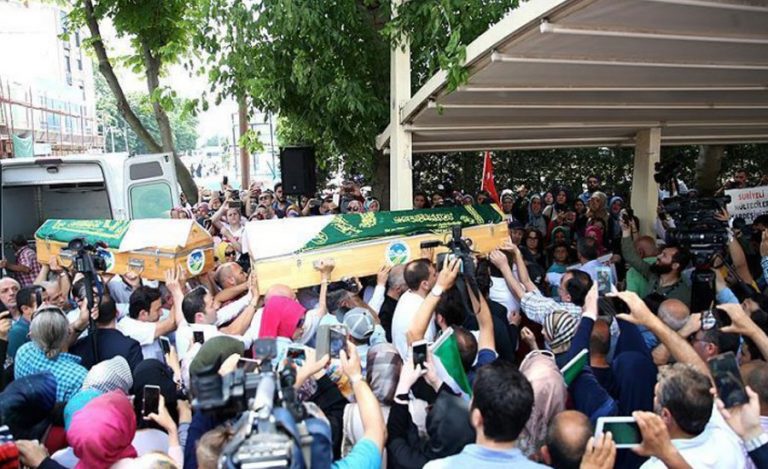Turkey last week saw a rise in tensions between Syrian refugees and Turkish citizens, with protests against the presence of the Syrians accompanied by incitements against them on social media platforms and the launch of a hashtag calling for Syrians to return to their lands. Meanwhile, Turkish officials are calling for people to exercise prudence, avoid any strife and control themselves.
The escalation came as a result of Syrians photographing two women wearing bathing suits on the shores of the city of Samsun in northern Turkey, which inflamed the Turkish street. Coinciding with that were a numbering of stabbings carried out by Turks against Syrians in Ankara, in addition to a Turkish car running over a Syrian man and his wife near one of the camps south of Ankara.
In addition to that, Hatay province witnessed a deployment of T-67 medium armored vehicles in some streets and districts in anticipation of any protests or clashes between Syrians and Turks.
As a consequence of the tension and anger against refugees, unknown men raped a seven months’ pregnant Syrian woman and killed her along with her 10-month-old infant in Sakarya province in northwest Turkey.
The Turkish police found the corpse of the woman and her child in a forest after the police received a report from her husband that his wife was missing when he returned to his house. Turkish security forces arrested the perpetrators, with the Hurriyet Turkish newspaper reporting that the Turkish citizens confessed the crime, saying that they were in a work dispute with the husband of the victim, without giving more details.
Turkish media circulated a video showing dozens of Turkish civilians gathering in front of the police station where the criminals were held after being arrested, amid chants demanding they be executed by stoning because of the monstrousness of their crime, which shook the Turkish community in the area.
In an attempt to reduce the extent of the shock, representatives of a number of civil society groups in Turkey conducted a visit to the Syrian husband, Khalid al-Rahman, offering him their condolences and confirming their solidarity with him.
Attempts to reduce tension and hints at expelling abusers
Turkish officials have tried to calm the situation. The Turkish Interior Ministry said that the exaggerated importance given to unfortunate incidents that occur sometimes between Syrian refugees and Turkish citizens in some areas aimed to sow strife between the two sides and turn them into tools to be used to achieve domestic political aims.
The ministry said that the ratio of Syrians’ involvement in incidents that harmed public order in Turkey during the period from 2014 to 2017 was about 1.32 percent of all problems and incidents that occurred in the country.
Deputy Prime Minister Numan Kurtulmus called on the Turkish people to exercise prudence regarding the incidents, saying, “Turkey is passing through a very sensitive stage and there are countries and foreign parties trying to create social divisions in our country.”
The mayor of Istanbul has called on Syrian refugees to “respect landlords and pursue their lives in Turkey on this basis, and refrain from illegal behavior and from behaving in a way contrary to local habits.”
The Presidency of Religious Affairs devoted a Friday sermon in all Turkey’s mosques to discuss Syrians in Turkey, especially after the campaign of incitement against them.
Racist hashtag against Syrians
These developments come with the escalation of the campaign against Syrian refugees in Turkey on social media platforms, especially after emergence of the #SuriyelilerEvineDonsun hashtag, which translates to “Syrians, go back to your country,” which was in the Twitter top trending hashtags list in Turkey.
Within two days of its launch the hashtag was tweeted more than 150,000 times, both by those supporting expelling refugees and those defending them.
Those who launched the hashtag promoted the idea that giving Syrians Turkish citizenship could create a change in the Turkish political scene, and claimed that the aid that the Turkish government was offering to Syrians came at the expense of the poorest Turkish citizens.
Politicians, journalists and Turkish celebrities rejected the contents of the hashtag, saying that Syrians were “Turkey’s guests” and that they should be supported in light of the war which their country was experiencing.
This article was translated and edited by The Syrian Observer. Responsibility for the information and views set out in this article lies entirely with the author.


